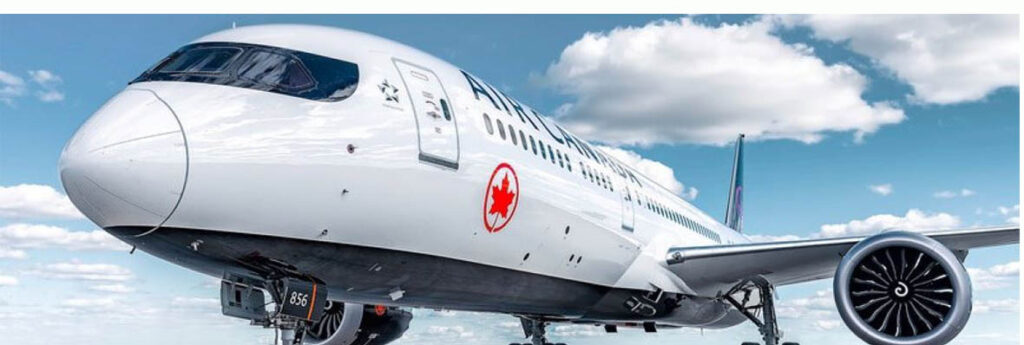Air Canada says earnings last quarter reached heights not seen since before the COVID-19 pandemic amid high travel demand and pricier fares, and despite thousands of flight delays.
The country’s largest airline posted net income of $838 million in the quarter ended June 30 compared with a loss of $386 million in the same period a year earlier.
Air Canada says operating revenues in its second quarter climbed to $5.43 billion from $3.98 billion the year before.
With analysts noting higher ticket prices behind the thicker profit margins, Air Canada CEO Michael Rousseau says strong demand propelled more than 11 million customers across its network in the quarter – a 23% increase.
He added, “We are particularly pleased with our international performance, propelling nearly 70% of the year-over-year increase in passenger revenues.”
Rousseau added that Air Canada Vacations continued to see high demand for leisure travel packages, and Aeroplan added new partners and grew its membership.
The company also ended the quarter with more than $9.6 billion in cash, cash equivalents and investments, with Rosseau stating, “This will enable us to further invest in our business, deleverage our balance sheet and ensure our company maintains the resiliency and adaptability needed for long-term success and to navigate through evolving market conditions.”
But Rousseau says that despite more staff and revamped technology, Air Canada’s operations in June and July failed to meet expected levels, with the company ranked last among North America’s 10 biggest airlines for on-time performance in July in a report by Cirium this week.
Rousseau pointed to “severe weather” – storms, especially – and “global supply chain issues” over the summer.
He also acknowledged problems on its large network of regional flights, run by Jazz Aviation. The CEO cited a pilot shortage amid new competitors – Flair Airlines and Lynx Air are two – stricter rules around rest and shift length. as well as pilot schools that saw enrolment shrink to a trickle during the COVID-19 pandemic.
“We have this almost perfect storm that exists at this point in time,” Rousseau said. “We’re working hard with our partner, Jazz, on solving that problem right now, but it will take some time to transition.”
He added, “We are increasing our efforts to protect the customer journey from disruption, regardless of the cause. This includes using any influence we have, in such instances as pilot attrition at our principal regional partner or global supply chain issues, or working to mitigate the effects of situations beyond our control, such as disruptive storm activity in our key hubs and markets. We are confident that our efforts will generate positive outcomes.”

